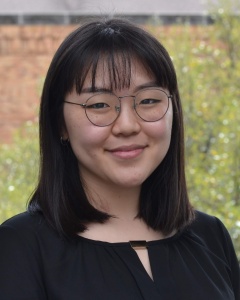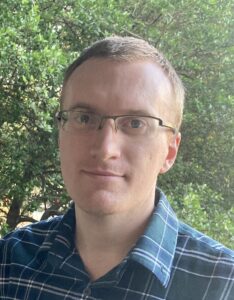This program honors the late Paul Leventhal, who advocated tirelessly for the protection of the United States and the world from the proliferation of nuclear weapons and the materials and technology to make such weapons. One LBJ School student per year is awarded a stipend for a summer internship at a governmental or non-governmental institution working on nuclear nonproliferation or associated weapons of mass destruction issues.
Donations to the Leventhal Fellows Endowment are tax-deductible.
For online donations, click here. Or make checks payable to “The University of Texas at Austin,” include a memo line stating “Paul Leventhal Fellows Endowment,” and mail to:
ATTN: Development Office
The LBJ School of Public Affairs
University of Texas at Austin
2300 Red River St., Stop E2700
Austin, TX 78712
For further info on giving: Rachel Ciullo (rciullo@austin.utexas.edu) Tel. (512) 471-3004
Past Leventhal Fellows
 2023 — Nicholas Stenseng
2023 — Nicholas Stenseng
Intern at Sandia National Laboratories, focused mainly on its Nuclear Deterrence and Global Security Program portfolios. Nicholas is a Master’s student in Global Policy Studies, pursuing a career in national security intelligence analysis, specifically regarding weapons of mass destruction and other emerging weapons technologies.
 2022 — Esther Ko
2022 — Esther Ko
Intern at the Nuclear Threat Initiative, an NGO in Washington, DC. Esther graduated in 2023 with a Master of Global Policy Studies from the LBJ School, where she researched North Korea’s military capabilities and the “Gold Standard” in U.S. nuclear trade agreements. For 2023-24, the U.S. National Nuclear Security Administration awarded her a Graduate Fellowship in the Office of Policy and Strategic Planning.
 2021 — Nils Holst
2021 — Nils Holst
Intern at the Center for Arms Control and Non-Proliferation, an NGO in Washington, DC. At the LBJ School, Nils focused on nonproliferation and counterterrorism, and he graduated with a Master of Global Policy Studies in 2022.
 2018 — Kingsley Burns
2018 — Kingsley Burns
Intern at the Department of Justice working on weapons of mass destruction. At LBJ, Kingsley wrote about France’s production and use of MOX fuel, in Plutonium for Energy? Explaining the Global Decline of MOX, and graduated with a Master of Global Policy Studies in 2019. Kingsley later was awarded an NNSA Graduate Fellowship for 2019-2020, working in the Office of Defense Programs.
 2017 — Harry Kim
2017 — Harry Kim
Intern at the Wilson Center’s Nuclear Proliferation International History Project. Harry graduated with a Master of Global Policy Studies degree in 2018, aiming to pursue a career in nuclear nonproliferation, focused in East Asia.
 2015 — Courtney Weldon
2015 — Courtney Weldon
Intern at the U.S. Department of State’s Office of Missile, Chemical, and Biological Nonproliferation. Courtney graduated in 2016 with a Master’s degree in Global Policy Studies and a specialization in Energy Security.
2014 — Hannah Alberts
Intern at the International Institute for Strategic Studies in Washington D.C., for a project on rethinking nuclear deterrence. Hannah graduated in 2016 with a dual Master’s degree in Global Policy Studies (at the LBJ School) and Russian, East European, and Eurasian Studies.
Application Process
Current LBJ students are invited to apply by January 31 of each year for a Leventhal Fellowship the following summer. Applicants should submit a C.V. and a statement of interest (maximum one page) expressing why they seek such an internship and how the experience would advance their eventual career goals. These materials should be submitted to the LBJ School’s fellowship office and to the NPPP Coordinator, Prof. Alan J. Kuperman (ak@NPPP.org). Applicants also should indicate whether they already have arranged an internship. If requested, the NPPP can help match the Fellow with an appropriate organization – such as a federal government office, NGO, or think tank – in Washington, DC, or elsewhere.
